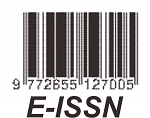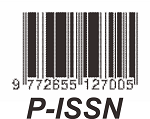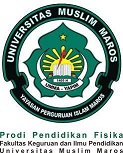PENGARUH MODEL PROBLEM BASED LEARNING (PBL) BERBASIS CHILDREN LEARNING IN SCIENCE (CLIS) TERHADAP MOTIVASI BELAJAR PESERTA DIDIK
DOI:
https://doi.org/10.46918/karst.v4i2.1127Keywords:
problem based learning, children learning in science, motivasi belajarAbstract
Penelitian ini merupakakn penelitian kuasi eksperimen yang bertujuan untuk mengetahui gambaran motivasi belajar peserta didik yang diajar dengan model pembelajaran PBL berbasis CLIS dan model konvensional serta mengetahui pengaruhnya terhadap motivasi belajar peserta didik. Desain penelitian yang digunakan adalah the matching only post test group design. Populasi penelitian berjumlah 136 orang yang tersebar pada 4 kelas. Sampel penelitian berjumlah 36 orang yang tersebar pada 2 kelas. Hasil penelitian menunjukkan bahwa rata-rata skor motivasi belajar peserta didik yang diajar dengan model pembelajaran PBL berbasis CLIS lebih besar dari model konvensional, yaitu 77,97 > 66,75 Hasil pengujian hipotesis menunjukkan nilai thitung > ttabel (9.081>1,997), sehingga disimpulkan bahwa model pembelajaran PBL berbasis CLIS memiliki pengaruh yang lebih baik dari model konvensional, terhadap motivasi belajar peserta didik.
Downloads
Published
Issue
Section
License
Karst : Jurnal Pendidikan Fisika dan Terapannya, adalah Jurnal Akses Terbuka (Open Access Journal). Penulis yang menerbitkan artikelnya dalam jurnal ini setuju dengan ketentuan berikut:

This work is licensed under a Creative Commons Attribution-ShareAlike 4.0 International License.
You are free to:
- Share — copy and redistribute the material in any medium or format
- Adapt — remix, transform, and build upon the material for any purpose, even commercially.
- Attribution — You must give appropriate credit, provide a link to the license, and indicate if changes were made. You may do so in any reasonable manner, but not in any way that suggests the licensor endorses you or your use.
- ShareAlike — If you remix, transform, or build upon the material, you must distribute your contributions under the same license as the original.
- No additional restrictions — You may not apply legal terms or technological measures that legally restrict others from doing anything the license permits.








94.jpg)

















